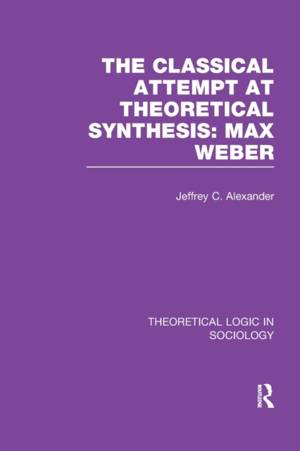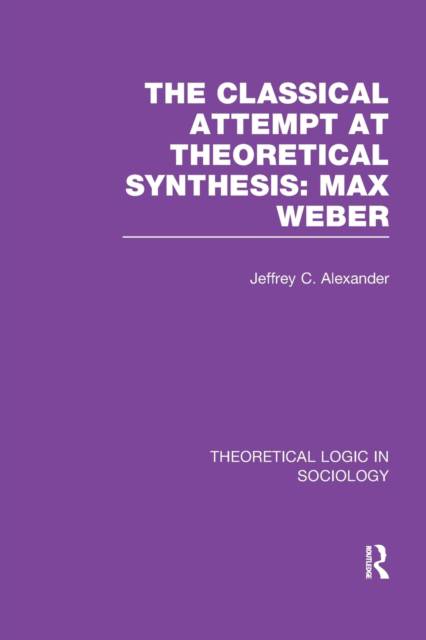
- Retrait gratuit dans votre magasin Club
- 7.000.000 titres dans notre catalogue
- Payer en toute sécurité
- Toujours un magasin près de chez vous
- Retrait gratuit dans votre magasin Club
- 7.000.000 titres dans notre catalogue
- Payer en toute sécurité
- Toujours un magasin près de chez vous
90,45 €
+ 180 points
Format
Description
The limits of one-dimensional theory are strikingly revealed in the schools that the founders of the major sociological traditions established. In this volume Max Weber is presented as the theorist who laid out new starting points and the author considers his work as a response, in part, to the idealist tradition which (in Volume 2), he maintains that Durkheim represents. As Weber was less able to avoid ambiguity, the author examines the weaknesses and efforts at 'paradigm revision'.
Spécifications
Parties prenantes
- Auteur(s) :
- Editeur:
Contenu
- Nombre de pages :
- 242
- Langue:
- Anglais
- Collection :
Caractéristiques
- EAN:
- 9781138997738
- Date de parution :
- 27-01-17
- Format:
- Livre broché
- Format numérique:
- Trade paperback (VS)
- Dimensions :
- 156 mm x 234 mm
- Poids :
- 371 g







